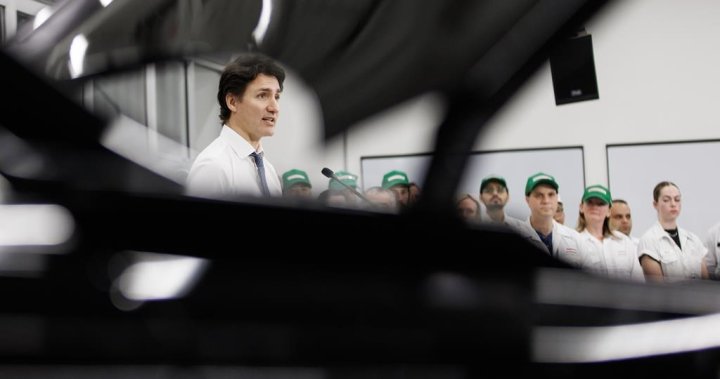Prime Minister Justin Trudeau, Ontario Premier Doug Ford, and Honda executives are set to announce a $15 billion investment in Alliston, Ontario, which will include the construction of an electric vehicle battery plant. The investment also involves retooling Honda’s assembly plant in Alliston to produce fully electric vehicles. The project will also see the establishment of two key battery parts facilities in Ontario. While there may be some capital investment from government levels, the deal does not include production subsidies, in contrast to incentives offered by the United States.
The federal government has proposed a 10 percent Electric Vehicle Supply Chain investment tax credit in its recent budget, which Honda can leverage along with an existing 30 percent Clean Technology Manufacturing Investment tax credit. This deal with Honda marks the third electric vehicle battery plant in Ontario, following Volkswagen in St. Thomas and a Stellantis LG plant in Windsor. Additionally, Honda’s agreement includes two key parts suppliers for their batteries—cathodes and separators—whose locations will be announced at a later date. This investment comes after years of discussions and meetings between Honda executives and the Ontario government, stemming from a past government announcement at Honda’s Alliston facility.
Trudeau, Ford, and Honda executives were present in March 2022 when Honda announced hybrid production at the plant, receiving $131.6 million in assistance from both levels of government. This initial announcement sparked talks about a larger potential investment in electric vehicles, leading to negotiations that started in the following summer. The deal marks a significant step in promoting electric vehicle production in Ontario, helping to position the province as a hub for electric vehicle manufacturing and supply chain development. This collaboration between government and industry is seen as a positive step towards sustainable and environmentally friendly transportation solutions in the country.
The establishment of the Honda electric vehicle battery plant in Alliston is a significant milestone for the region, showcasing Ontario’s commitment to transitioning towards electric vehicle production. The investment not only creates job opportunities in the area but also strengthens the province’s position in the global automotive industry. With a focus on clean technology and sustainability, this project aligns with the government’s goals of reducing emissions and promoting eco-friendly manufacturing practices. The collaboration between stakeholders in this initiative reflects a shared commitment to innovation and advancing Canada’s position in the electric vehicle market.
The government’s proposed tax credits for electric vehicle supply chains aim to incentivize companies like Honda to invest in sustainable manufacturing practices. By offering tax incentives and creating a supportive policy environment, Canada can attract more investments in clean technology and position itself as a leader in the transition towards electric vehicles. The establishment of additional battery parts facilities in Ontario will further enhance the province’s capabilities in electric vehicle production, creating a robust supply chain ecosystem that supports the growing demand for electric vehicles. This strategic partnership between governments, automakers, and suppliers demonstrates a coordinated effort towards achieving long-term sustainability goals.
Overall, the announcement of Honda’s investment in an electric vehicle battery plant and production facility in Alliston reflects a significant step towards advancing Canada’s position in the electric vehicle market. The collaboration between government and industry leaders demonstrates a shared commitment to promoting sustainable transportation solutions and driving innovation in the automotive sector. With the establishment of key battery parts facilities and the utilization of tax credits for investments in clean technology, Ontario is poised to become a hub for electric vehicle manufacturing and supply chain development. This investment signals a positive shift towards a greener and more sustainable future for the automotive industry in Canada.


